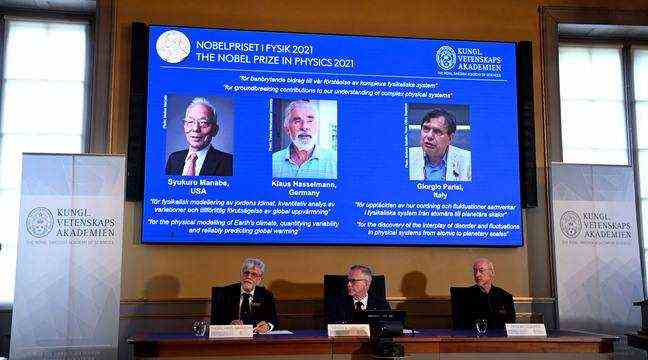The Nobel Prize in physics, awarded this Tuesday in Stockholm, was awarded to three scientists. If the common rewards, when several researchers work on the same project or on works that answer each other, have become regular, like this Monday in medicine, this is not the case here.
For a first half, the prize jointly rewards the American-Japanese Syukuro Manabe and the German Klaus Hasselmann, both researchers in meteorology, “for the physical modeling of the Earth’s climate and for having quantified its variability and predicted in a meaningful way. reliable global warming, ”according to the jury. With this prize awarded in the midst of the climate crisis, the Nobel committee notably rewards Manabe’s founding work on the greenhouse effect in the 1960s, by which he showed that the levels of CO2 in the atmosphere corresponded to the rise in temperatures. terrestrial.
The other half of the prize goes to the Italian Giorgio Parisi, 73, “for the discovery of the interplay of disorder and fluctuations in physical systems from the atomic to planetary scale”. His arduous work was among “the most important contributions” to the theory of so-called complex systems. For the past two years, the prize has rewarded research in astronomy, for the discovery of the first exoplanet and then research on black holes.

